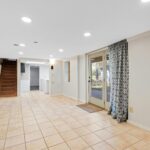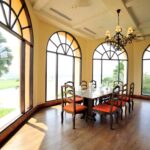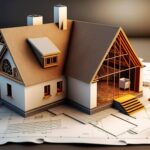In today’s fast-paced world, where urbanization and housing demands are at an all-time high, finding cost-effective, durable, and sustainable living solutions has become a priority. Foldable and expandable homes are emerging as a revolutionary alternative to traditional housing methods, offering immense financial and practical benefits.
These modern, prefabricated structures are designed to meet the needs of diverse users, from individuals seeking affordable housing to businesses in need of mobile office spaces.
What Are Foldable and Expandable Homes?
Foldable and expandable homes are a type of prefabricated homes and you can get a prefab home in Houston with PackPrefab. These structures are factory-manufactured and then transported to the desired location, where they can be quickly assembled. What sets them apart from traditional prefabs is their ability to expand or fold into compact units, making them highly portable and space-efficient.
Key Features Driving Cost-Effectiveness
- Reduced Material Wastage Foldable and expandable homes are manufactured with precision in controlled environments. This minimizes material wastage, unlike traditional construction methods where on-site wastage can significantly inflate costs. The savings on raw materials directly contribute to the overall affordability of these structures.
- Lower Construction Costs Traditional housing requires extensive groundwork, labor, and time, which all add to the cost. In contrast, prefab homes are built off-site and only require minimal assembly at the location. This streamlined construction process reduces the need for skilled labor and expensive machinery, making it a more cost-effective solution.
- Efficient Transportation These homes are designed to be compact during transportation. A single truck can carry multiple units, significantly lowering logistical expenses. Once on-site, the units are easily expanded to their full size without the need for heavy equipment.
- Energy Efficiency Many foldable and expandable homes are designed with energy-efficient materials and features, such as insulation and solar panels. These elements not only reduce the carbon footprint but also cut down on utility costs over time, making these homes more affordable in the long run.
Advantages Over Traditional Housing
- Faster Construction Timeline Time is money, and nowhere is this truer than in construction. Foldable and expandable homes can be manufactured and assembled in weeks, compared to months or even years for traditional builds. This rapid timeline translates to substantial savings in labor and financing costs.
- Mobility and Versatility These homes are not only cost-effective for residential use but also ideal for businesses looking for portable office spaces. They can be moved to new locations as needed, eliminating the cost of building or renting new premises.
- Durability and Longevity Built with high-quality materials, these homes are designed to withstand various weather conditions. This durability reduces maintenance and repair costs, ensuring long-term savings.
Applications That Maximize Cost-Effectiveness
Emergency and Disaster Relief
During natural disasters, foldable and expandable homes can be deployed quickly to provide shelter for affected populations. Their low cost and ease of transportation make them ideal for such situations.
Temporary Living or Workspaces
These homes are perfect for temporary housing needs, such as during large construction projects or events. Their ability to be packed up and reused in other locations further enhances their value.
Affordable Housing Solutions
With housing costs skyrocketing in urban areas, foldable and expandable homes offer an affordable alternative for families and individuals. Governments and NGOs can also use them to address housing shortages.
Economic and Environmental Impact
The affordability of foldable and expandable homes extends beyond individual savings and you will get a very good price if you choose to buy from PackPrefab. On a macroeconomic level, these homes reduce the demand for traditional construction materials, thereby lowering costs across the construction industry. Environmentally, the reduced energy consumption during manufacturing and the ability to use sustainable materials make these homes a greener option.
A Case for the Future
In conclusion, foldable and expandable homes are not just cost-effective but also practical, versatile, and eco-friendly. They address the pressing need for affordable housing without compromising on quality or functionality. For those looking for innovative, budget-friendly living solutions, prefabricated homes are the ultimate choice, offering unmatched value and convenience in today’s world.







